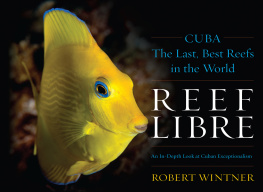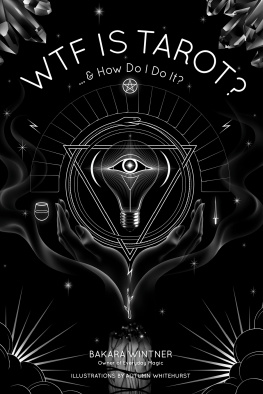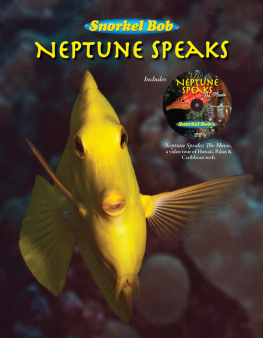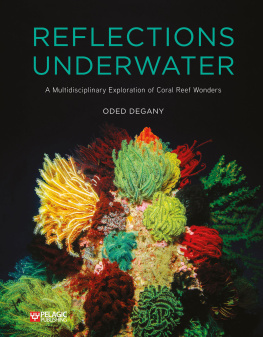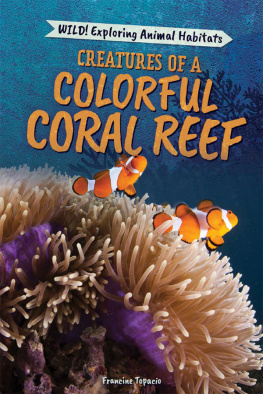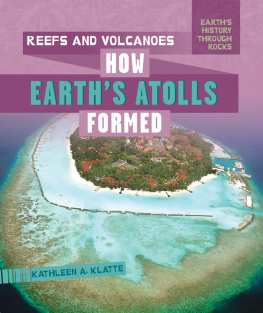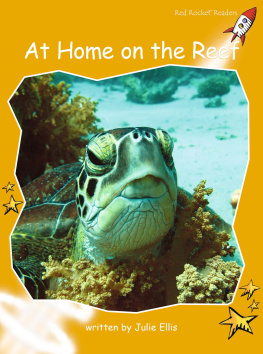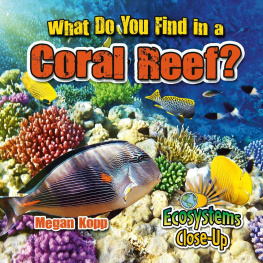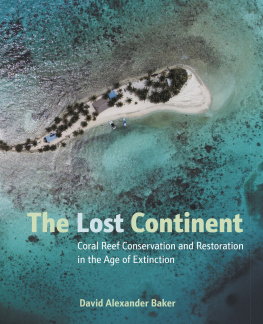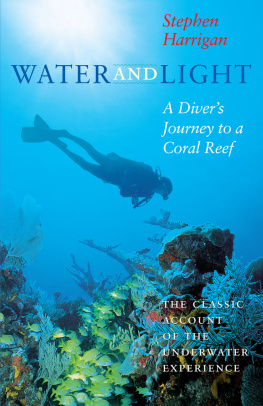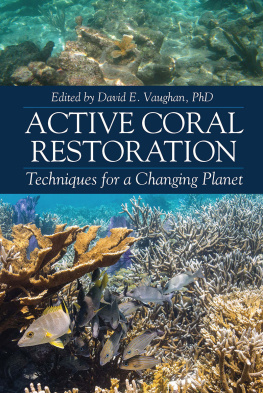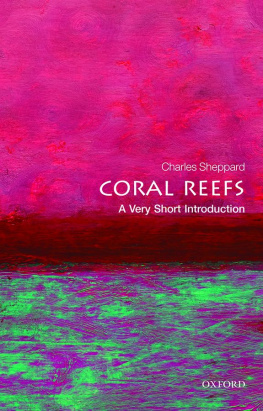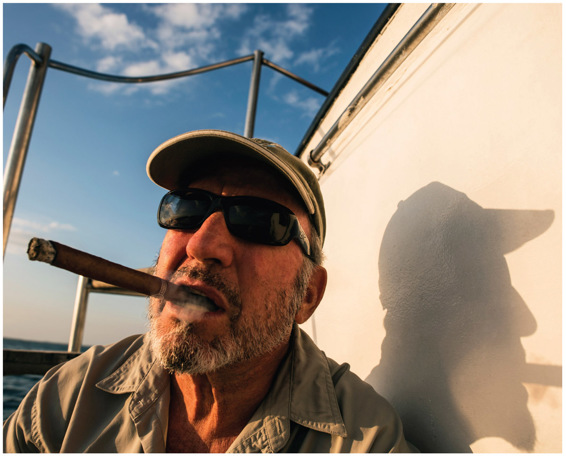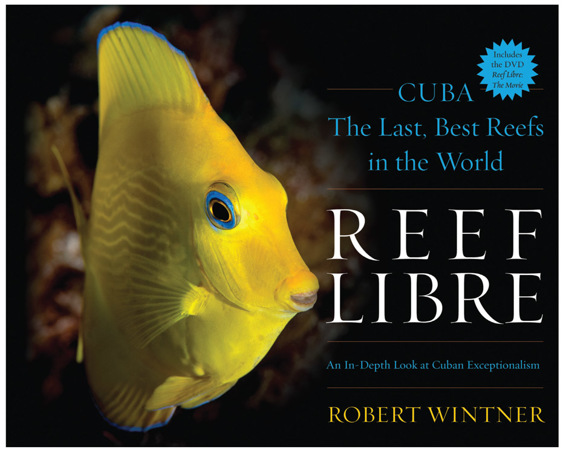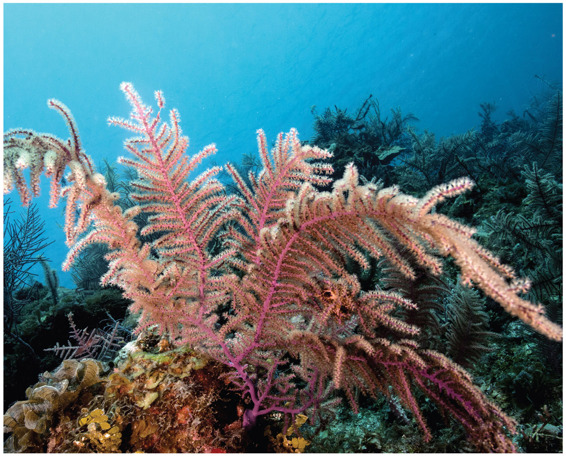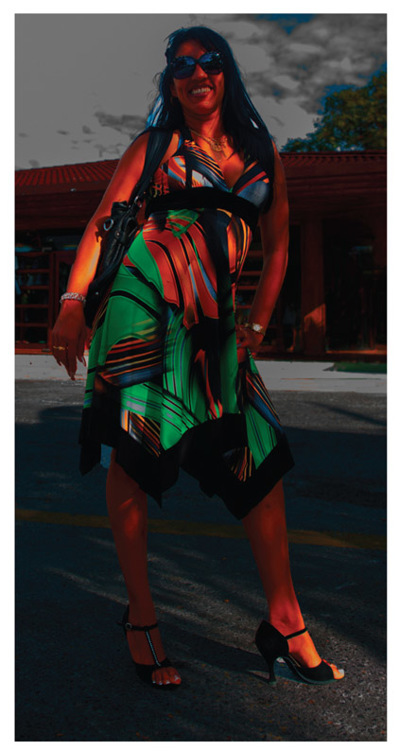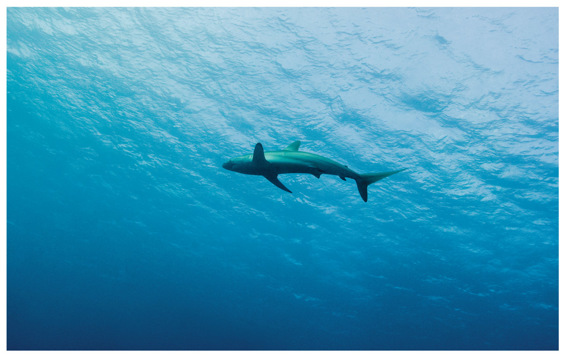ABOUT THE AUTHOR
Robert Wintner is the nom de plume (et de guerre) of Snorkel Bob, Himself, founder of Snorkel Bobs in Hawaiithe only designer and manufacturer of world-class masks, fins and snorkels in Hawaii. He is on the front lines to ban the aquarium trade around the world, because its all one reef. Among notable breakthroughs is the MoflO2the worlds first fresh-air snorkel, because youd rather breathe deep in a forest than in an elevator.
He has authored many novels, short story collections, and reef photo books, including two recent memoirs. 1969 and Then Some recollects a golden era and the lingering influence of those times on daily life, values, and decisions made decades later. Brainstorm is a memoir on cerebral aneurysm in the family and the difficult resolution between, on the one hand, a medical system based on secrecy and heroic efforts, and, on the other hand, a couple who resist treatment until the medical establishment allows them a voice in the process.
ABOUT THE COVER
The title Reef Libre draws on the name of the cocktail, Cuba Libre, made with cola and rum, lime juice optional. Reef Libre is in tribute to every man, woman, and child in every country of the world who loves reefs and would free them from ruinous extraction and defilement.
Cuban exceptionalism borrows from a notion widely circulated recently, that Americans are exceptional, because. The sentiment may be true but ends abruptly, without specifics. The concept here applies to reef recovery efforts in Cuba.
REEF LIBRE
Most travel is now formatted on brochures or ads as Eco, so you can sense adventure and a solution at hand for what ails the world. Adventuring is now led by pros and rendered safe, but the seasoned traveler can still begin initial descent to Havana and ponder fickle destiny. How could anybody live here? How did this happen? Will it be dangerous at street level, or even getting through the airport? Will I encounter mystery or a dramatic turn of events? Will I meet a stranger or stroll into circumstance?
Will I return to this place? Or even make it home?
What do they see at ground level, looking up?
Do they still look up?
The jetliner drops below the clouds with no shudder or jolt, and it feels amazing, with no help from the FAA. Thats a laugh, a short one as Cuba firma reveals a deserted landscape with no clutter, which isnt the same as wilderness but has no roadways knotting the countryside, no lights, few buildings, sparse traffic. Details fill in as more key components of the modern world are left outclarity comes on with conspicuously open spaces, with an absence of stuff. Country roads, fields, pastures, sparse living compounds, and little else to mar the natural beauty render feelings of rejuvenation and intrigue. Cuba is not a tourist display like Williamsburg or Disneyland; instead of plastic replicas, gingerbread adornment, and period costume, the time warp in Cuba has no props. The antiquated life and accoutrements are real, original equipment.
Most travelers subliminally knowwherever they gowhat it might take to get home in a pinch. But distance in miles and logistics seems miniscule compared to Cubas disjunctive present. Cubas past and future merge to a single tense, and from a few hundred feet up, it seems oddly classic.
Deprivation in a police state as dictated by one man and his brother sinks in soon enough. Immigration is straightforward: Look up, sir. Into the camera. Please, sir. Do not smile. Customs too would be a breeze, albeit stiff and chilly, even with a fifty-pound trunk filled with underwater camera housing, strobes, arms, batteries, ports, synch chords, rechargers, backups, and the like. Another fifty-pound dive bag on wheels filled with scuba and snorkel gear and two personal carry-ons heavier than most, filled with cameras and lenses, made for a profile.
The unfortunate machismo factor can bear down in any place, especially a Latin American place. We divvied the luggage, but my travel companion, mi esposa, is petite, blonde, and, well, female; complications ensued. Or rather they struck in the form of a tall, armed, uniformed man who glared at her and accused, You. Stop. Here.
Long story shortand it was long, painfully, frightfully long, with a specter of indefinite containment in a Communist country at odds with the U.S.: no customs official would speak to or look at Anita once she was told to stop. For two hours she stood there as if invisible, unable to get a response. The rest of the expedition party waited outside, forbidden to reenter. Two adult, English-speaking males offered commiseration. One encouraged me to slip back in when the guard looked away. I asked him to join me. His eyes rolled back, like Id asked him to jump off the ninety-fifth floor. The scene felt tiresome after twenty hours of travel, and it felt threatening, in a Third-World Communist version of fear and loathing, call it fear and entropy, without initiative, without hope. The scene was wrong but nobody could fix it, so we waited another hour, stuck like a big corporation losing money and fooling the stockholders, like Enron or Citibank or AIG or the rest of the too-big-to-fail group. Cuba felt like that on arrival, like a giant, meandering hierarchy trickling to nowhere on a vague concept presented long ago by a long-since-faded CEOlike a failure, though this one has military backup.
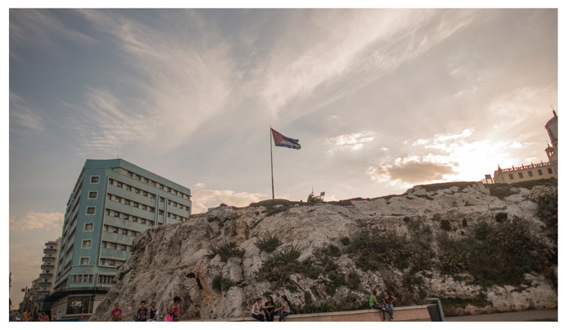
Oer the ramparts we watched....
I waited for the guard to turn away on his next attempt to control the crowd yonder, and I slipped back inwhere two armed officers interceded immediately with no uncertain terms. So I explained, Es mi esposa alla. Its my wife over there.
Get out.
An hour later a younger but equally severe armed officer finally responded to her plea, by that time conveyed with sincere fatigue and failing posture. In marginal English, Luis allowed the suspect carry-on to be lifted onto an examination table and opened. Caramba! This is not tourist camera equipment! This is... professional!
The word professional is most often enjoined in English-speaking countries to indicate a level of competence or standard of merit. While that connotation is widely accepted, the denotation of professional is that payment is rendered for services. Professional differs from amateur in critical essence. Payment for services reeks of self-enrichment, that hateful human behavior common to professional pursuits. Self-enrichment is anathema to the Revolucin, and though we would come to observe its prevalence in Cuba, its pursuit is entirely incognito.
Meanwhile, the Revolucin reveres its amateur heroes, like Tefilo Stevenson, the beloved Cuban three-time Olympic gold medalist boxer who should have been the heavyweight champion of the world and could have made the hundreds of millions of dollars that status would bring. He chose instead the amateur spiritthe spirit of the Revolucin, which is love for the process and the contribution made, not love of... money. Tefilo Stevenson fought to 301 wins, twenty defeats without defecting or straying for a single syllable till the day he died at age sixty in 2012, a tribute to the pure ideal. He is iconic in Cuba and among boxing fans around the world.

